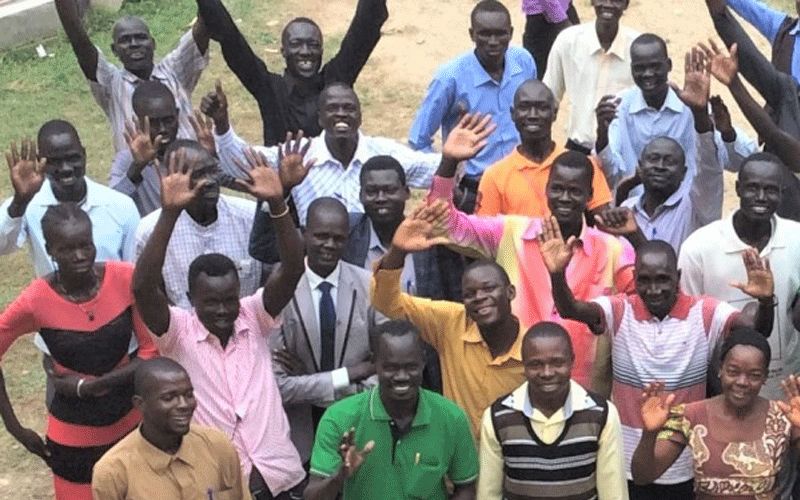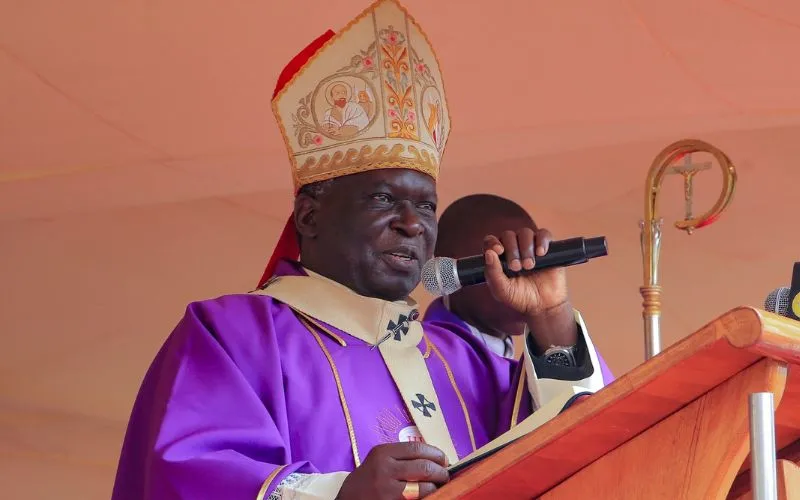The Kenyan youth movement also conducts youth rallies that brings together thousands of youths in schools who take part in Holy Mass, get an opportunity to interact with each other and discuss issues affecting the country.
In South Sudan, YCS has played a key role in bridging youth leadership, building social relations as well as in providing spiritual orientation to youth in schools through diocesan pastoral agents, Dr Gore said.
It is at the backdrop of emerging gangs made of young men aged between 15 and 20, which Dr Gore blames on lack of Christian values, that the church is seeking to revive the student movement whose method is “See-Judge-Act”.
“YCS is trying to avoid crimes perpetrated by the youth who seek shortcuts to survival,” Dr Gore told ACI Africa correspondent and added, “Such youth lack the values and life skills and they easily give up in life. We aim to support our students in schools, at home and in the Church so that we don’t give them a chance to go to the world that is destroying them.”
Highlighting some of the activities that would keep the students engaged in the YCS movement, Dr Gore said the students would have an end-month Mass “that is one of the strongest elements supporting them spiritually. They have activities lined up including Bible sharing.”
(Story continues below)
19-year-old outgoing secretary of YCS, Dalia John, shared with ACI Africa the benefits of the organization to the young people in the schools.
“Many students are abandoning criminal groups such as Niggas (an all-youth criminal group in South Sudan), and are joining YCS where they know they can find activities like sports, leadership training and how to be a good parent. They are in turn doing well in their class as well,” YCS outgoing secretary Dalia John told ACI Africa on the sidelines of the election exercise Tuesday, January 28.
She recounted how the movement had impacted on her own personal development saying, “I have become patient and cooperative and I have made many new friends even outside the country. I have friends in Zimbabwe, Paris, and my own students here in South Sudan. I am grateful.”
Jane Peter, who had been in charge of finances at the movement said the role had equipped her with leadership skills and management of finances.
“By God’s will,” said Ms. Peter who went to Juba Commercial Secondary, “I believe I will be a minister of finance in South Sudan. I will not be corrupt because I fear the almighty God.”
The students recounted their experience in past activities organized by IYCS Africa. In November last year, IYCS Africa held a week-long 11th Pan African Council in Harare, Zimbabwe under the theme, “Youth engaging towards the achievement of the Sustainable Development Goals (SDGs): the contribution of students in Africa.”
It was also at the continental event that the election of the Pan African Coordination team for the period 2019-2023 was conducted.
Members of YCS movements from African countries that were present were also trained on transformative leadership, personal development and advocacy in their respective countries.
Information provided on the IYCS official website where the regional offices are listed details the apostolic role of the global movement as “evangelization and sanctification of men and the formation of a Christian conscience among them so that they can infuse the spirit of the Gospel into various communities and departments of life.”
Thus, “IYCS aims to transform the student milieu in the light of the Gospel. It has a preferential option for the poor and the oppressed. It educates and trains students to work for solidarity, freedom, justice and peace in the world.”
Topics outlined are those which have direct consequences in the life of pupils and students such as promotion of education, enhancing peace and conflict resolution in school and academic milieus, the preservation of the environment, good governance, solidarity actions, and fraternity.
Peter Mapuor Makur contributed to this story








